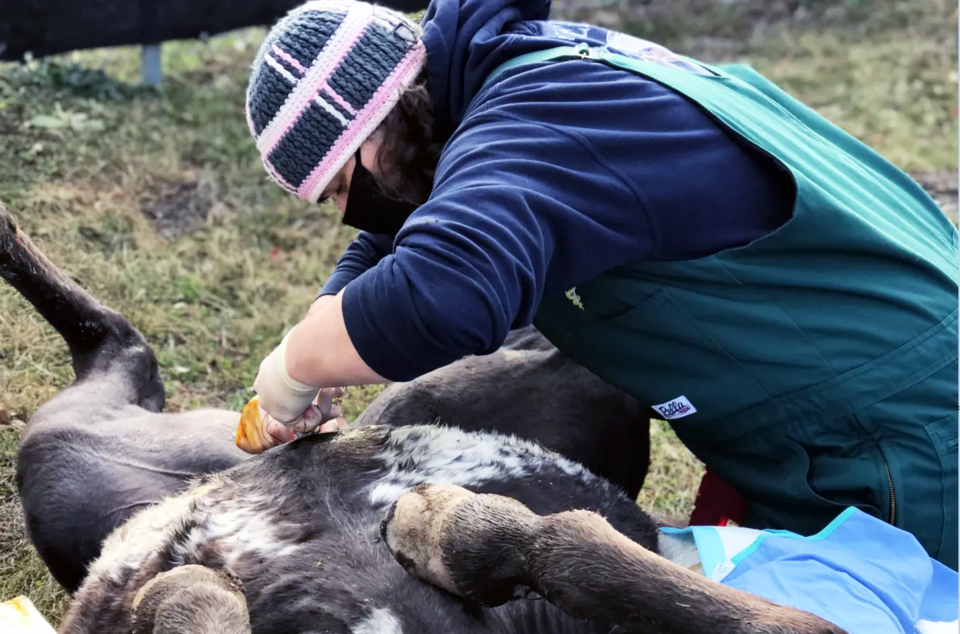The shortage of large-animal veterinarians has “greatly affected the viability of the livestock producers,” according to the B.C. Cattlemen’s Association, but the economic impact of that on B.C. isn’t known.
On Thursday, the Regional District of Fraser-Fort George board put their support - and $5,000 - behind a study planned by the Cattlemen’s Association to quantify the dollars-and-cents impact of the veterinarian shortage. The association is planning to hire national accounting firm MNP to conduct the work. The total cost of the study is pegged at $30,000.
Board vice-chairperson Lara Beckett said the district has done some advocacy regarding the shortage of veterinarians, and the need for additional training seats to be created.
“This is a piece of the information that’s been missing,” Beckett said.
A similar study conducted in Alberta in 2021, estimated that province’s veterinarians contributed nearly $1.1 billion toward Alberta’s GDP ($582 million directly, and $493 million indirectly) in 2020. The report also found that veterinarian practices of all types supported 10,211 jobs in Alberta directly and indirectly.
Director Warren Wilson said similar concerns about the shortage of large animal veterinarians have been raised by members of the Prince George Farmers’ Institute and the Prince George Cattlemen’s Association.
Mobile veterinarian clinics have been able to address some of the shortage, but keeping large animal vets in the area is difficult, he said.
“…(Puppy) dogs and pussy cats are way easier on them, and much more lucrative,” Wilson said.
Wilson said he shares the concern, raised by the B.C. Cattlemen’s Association, that livestock producers now require an existing vet-client patient relationship in order to purchase animal health products.
“This has become an animal welfare issue as well,” he said.
Director Danielle Alan said she’s fortunate to have a vet-client patient relationship, which allows her to keep basic animal medications in stock.
“If you don’t have that, and don’t have the medicine on hand, the animals die before you can get to see a vet,” Alan said.
In his letter to the regional district, B.C. Cattlemen’s Association general manager Kevin Boon said a veterinarian program at UNBC could be a possible solution.
“In seeking solutions, there are several options that the group have been exploring and one solution for our northern producers may be to follow the lead of the medical doctor’s partnership and program at the University of Northern BC, where recruiting and training in the north can lead to staying in the north. Northern students will benefit from this opportunity and most likely come home to the region they grew up in,” Boon wrote. “Having competent and capable large animal veterinarians throughout B.C is of utmost importance to not only those in the ranching and farming industries, but also for the general public.”





